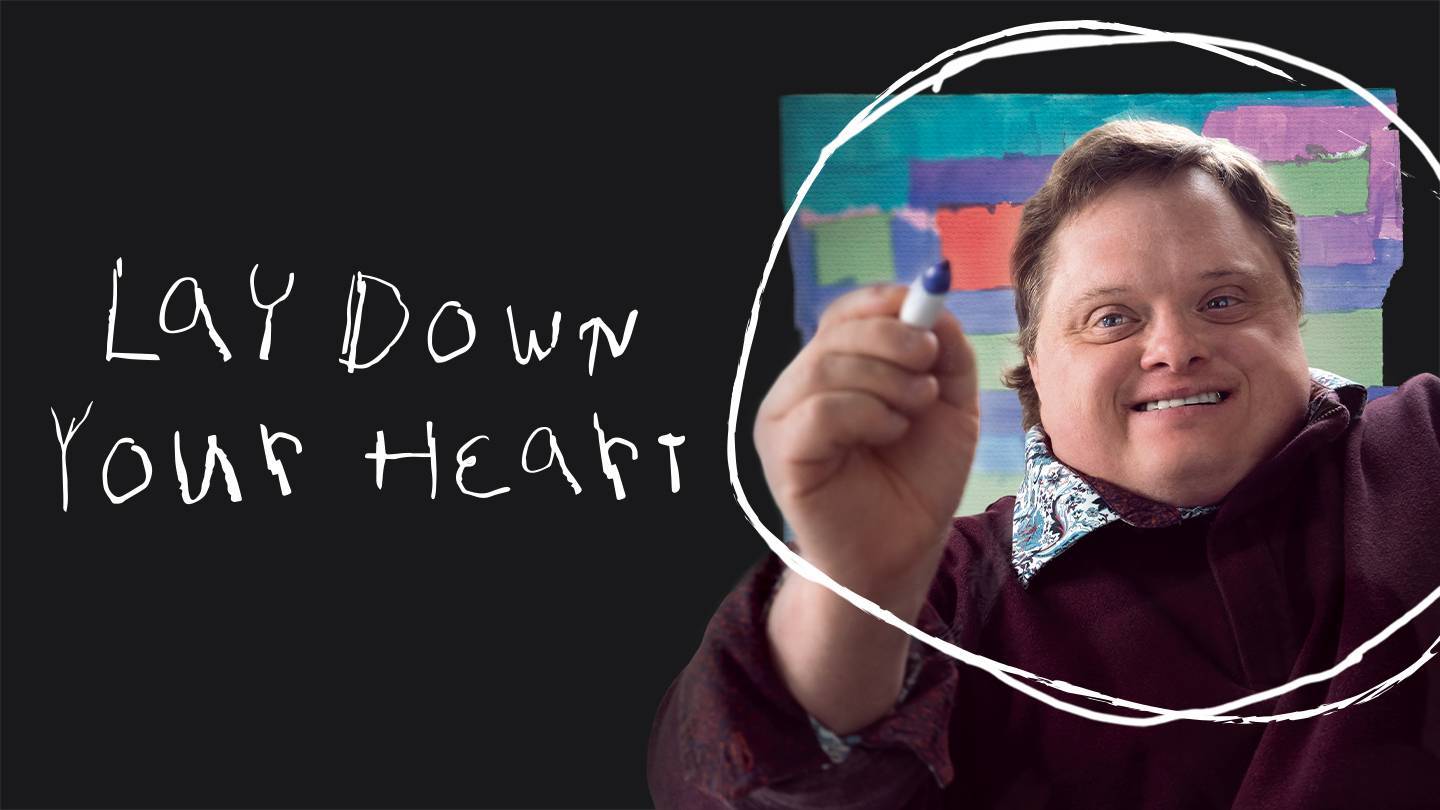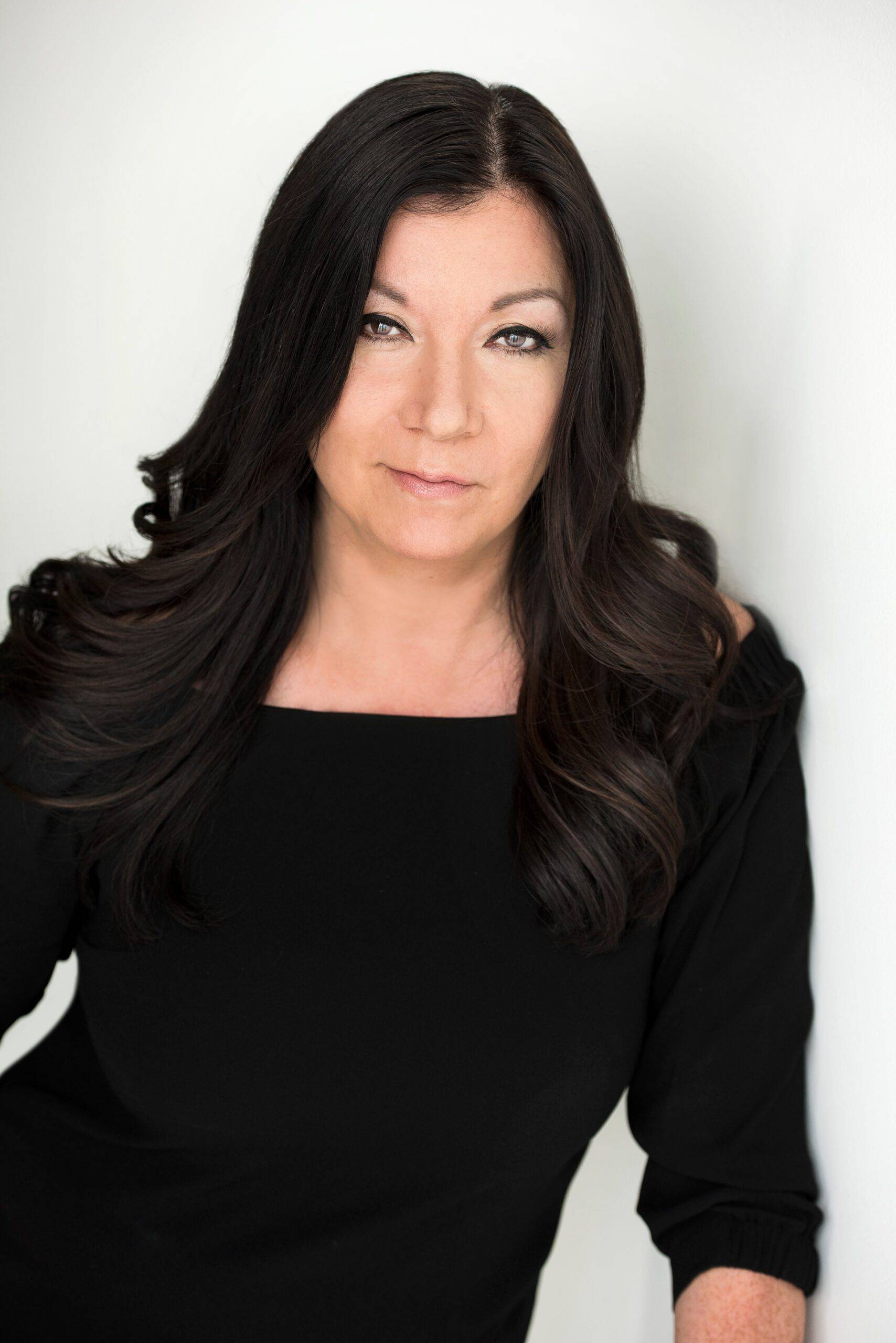Trailer
Niall McNeil – Star and Co-Writer
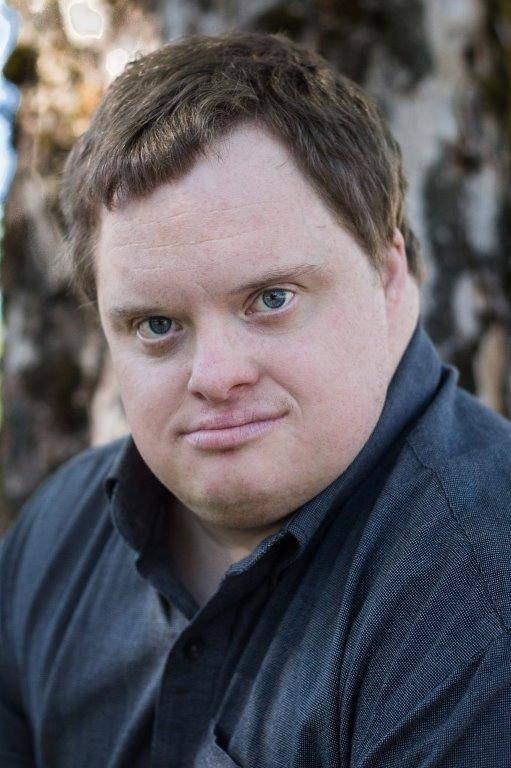
Niall McNeil is a multidisciplinary artist who, in his 20+yr career has created, written plays, filmed, recorded and performed in works for stage and film across Canada. He is the first Canadian artist with Down Syndrome to be a 2022 recipient of a Canada Council for the Arts Composite Grant to support the development of three new multidisciplinary works.
Marie Clements – Director and Co-Writer
Marie Clements is a Métis Dene filmmaker and the founder of MCM, a production company specializing in innovative works of media that ignite an Indigenous and intercultural reality. Some of her most well-known works include Bones of Crows and Red Snow. She was also the most recent recipient of the “Ignite” Award from the Director’s Guild of Canada.

The Conversation
Sitting down and chatting with Niall and Marie was my absolute pleasure. Through the film, Niall inspired me in so many ways. He showed what is possible as an artist if you continue chasing your dreams and don’t let what others might say hold you back. At one point in Lay Down Your Heart, Niall says, “When you’re afraid, you go backward”. This attitude has allowed him to excel – he understands that you should never let your fears hold you back from what you know you are meant to be doing.
During our conversation, I learned more about Marie and Niall’s relationship, the difficulties of filming during a global pandemic, and how Niall knows what role each member of his chosen family needs to take. At one particular moment, it became difficult to hold back my emotion as Niall explained that his “son” Steven had lost his blood father, so Niall knew that he needed to take on that fatherly role. The world could use more of that sort of empathy.
In the end, Niall is so much.
Niall is a man with Down Syndrome.
Niall is an artist with Down Syndrome.
Niall is an artist.
I, for one, can’t wait to see what he creates next.
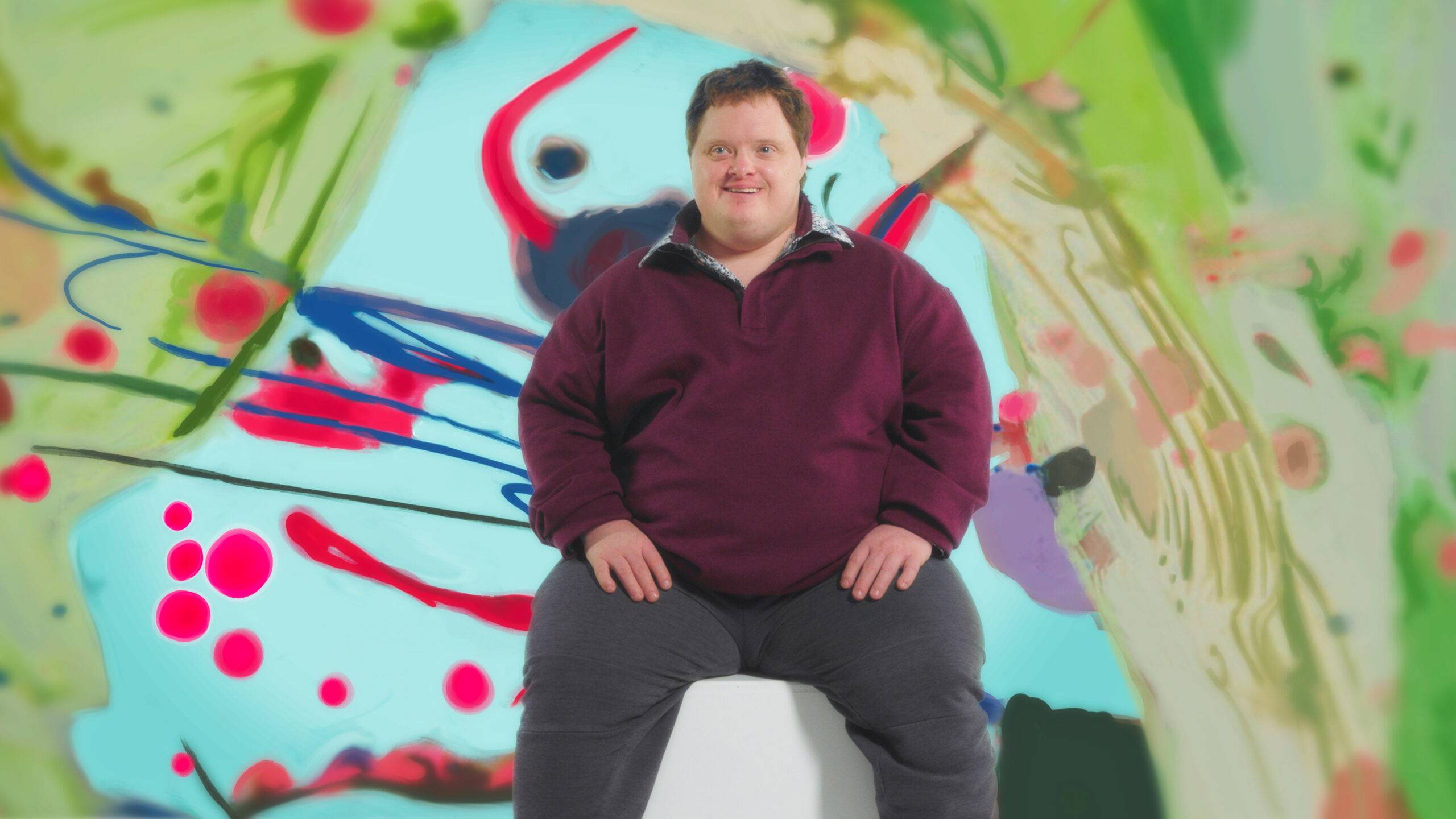
Adam Manery: From the first shots of the film, we can see how strong of a relationship you two have. Niall, what is it about Marie that you love so much?
Marie Clements: Uh oh.
Niall McNeil: I met Marie through my cousin, PAULA DANCKERT. She worked with Maria on some of Marie’s plays and movies. Marie and I have a different kind of relationship – it’s nice. We’re good friends, and we’re “exes”. Sometimes, Marie’s lines are a bit mixed up, and Paula likes to fix them.
MC: That’s the way it is. That’s the way it is!
AM: Like Niall alluded to, you two have known each other for a long time. How did that relationship grow into what it is now?
MC: Like Ni said, we met through his cousin Paula, who is a dramaturge and someone I’ve collaborated with on numerous plays for a couple of decades now, which is kind of scary… I met Ni when he came to a reading of one of my productions that was early in development, called Copper Thunderbird. At some point at the after-party, with all these actors and directors, Ni came up to me and informed me that I was his ex-wife, which started our relationship as friends.
I think we went directly to ex-wife, which is good, so we didn’t have to go through everything! Over the years, we really supported each other’s work and have gone to see each other’s pieces. He was also in a short film of mine called “Pilgrims”, and he’s helped out on many other productions, coming to do media and visual work and photography work. Because both of us like to do multiple things, we’re always interested in what each other is doing, what the story is, and how they came to it.
AM: I love it. Niall, you co-wrote this film with Marie. What was it like working with her on this film? Did she use the ideas you gave her?
MC: It’s like two confessions here…
AM: You can be honest, Niall.
MC: No, you can’t. You can’t!
NM: I loved being able to work with Marie on my own art and my own paintings. This film was so complicated, and we had to work with so many people around the country.
AM: That was probably even more difficult because you shot during the COVID pandemic, right?
MC: It was definitely complicated and placed a significant demand on Ni. We had initially planned to go to all the places where Ni’s blood family is and where his theatre family is – all across the country. But then, of course, COVID kicked in pretty hard, so we ended up having to shoot them in a studio, place Niall in a studio in Vancouver, and then try to make it look like everybody was in the same room through green screens. I think over 80% of Lay Down Your Heart is done remotely. It’s tricky for someone who’s performing or who is in front of the camera to do that and make it look natural, which he did, clearly!
AM: What was that like, Niall, trying to talk to these people who weren’t actually there?
NM: It was difficult until I got warmed up to it. It was tough to interview people like my dad, who was across the country in Nova Scotia. We had to get a hold of them and then set up different green rooms in Toronto and Vancouver. Then, they had to answer all of my questions and all of Marie’s questions. Questions about how they came to work in theatre, the Caravan world, working on the farm, all of that.
AM: There were so many of those folks in the film—members of your family, from the early Caravan days to now. If I can be honest with you for a second, you inspire me. I admire and respect how you put all of yourself into the art you do, so thank you for that. Is there any one form of art that is your favourite right now?
NM: That’s just my mind! I like to do everything. I like to use ice cube boxes to colour and sketch. I also like to paint, and I have some other projects to do with that now.
MC: Ni actually has his own art studio now, which is fairly new in another genre. He’s also just directed his own documentary, which is coming out, so the guy has been busy!
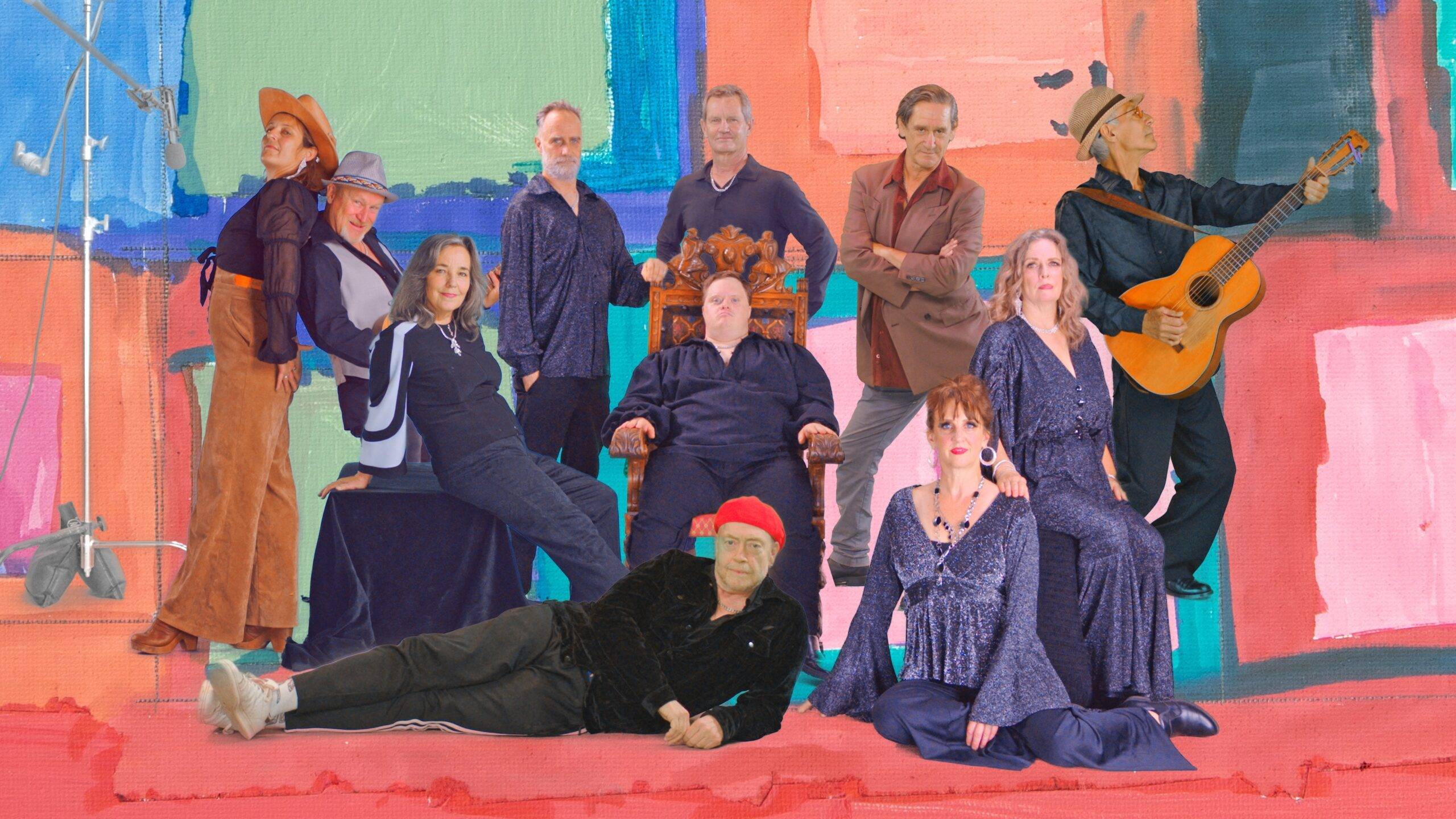
AM: The life of an artist – always doing something. Obviously, Niall’s art is front and centre in this particular film, and it’s such a cool representation of who he is. You incorporated mixed media, live-action animation, Niall’s art. How did you ultimately decide the visual form this film would encompass?
MC: We’re all just trying to keep up with Niall’s imagination. He has been painting and drawing so much that it was a natural fit for that to be a part of it. He sees things and then goes for it. The paintings that he showed me just fit perfectly. As artists, we talk about what we do; then we’re doing what we talk about. And Niall is an excellent example of an artist who is always thinking. So, in this film, we are trying to capture that movement of imagination as things form and transform and move into something else. Niall has also always been a great improviser, so we wanted the film to follow that energy and rhythm.
AM: That fluidity is so apparent in the film, and it was amazing to see on screen. Niall, you know many people in the film from the theatre world. What was it like being a Caravan Kid (the “Caravan” is a professional outdoor theatre located in British Columbia) and having all these amazing people around you?
NM: It’s so amazing to see all the theatre people in the movie. In Lay Down Your Heart, you see PETER HINTON and MARTIN JULIEN, who are connected to the Caravan Stage. From a Caravan Kid to a Caravan Adult, I learned so much from these people. I learned about my future and how I can become an artist. I have Down Syndrome, and they know that, but they still taught me how I could be an artist. This film shows that. As you saw in the movie, I still call my “daughter” once a month. Hopefully, this film shows some of these different relationships and lets us take on a better world.
AM: Marie, what was your experience with the arts growing up? Did you always know you would be a storyteller or a filmmaker?
MC: I got the bug pretty early on. Like Niall, I started as an actor, so I was doing all the things young child actors do – taking all those lessons, dancing, singing, theatre arts, doing shows. I did it for quite a while and then started expanding. There’s just a love of theatre that we both have and grew up in. It’s a hard discipline because theatre can be so unmerciful when you’re on stage. Because of that, though, it’s a great training ground for anything and everything you do afterward. So, I was definitely lucky to catch the bug early.
AM: Niall, in the film, we see so many of your chosen family – sons, daughters, ex-wives in the case of Marie, aunts, uncles… When you meet someone, do you immediately know that they’re family? How does that work for you?
NM: Well, for STEVEN HILL, his father actually passed away, so I asked him to be my son. Steven’s mother is Auntie May, and she has been a really good friend of mine. Some people really need adopted sons or daughters. Then there’s Marie, who I knew was my ex-wife, and some others are just friends. It depends on the person!
AM: You’re so aware of people’s emotions and what they need. You knew Steven was missing that father figure and wanted to fill that void for him. That’s so powerful.
NM: As a father, you need to always be kind to your own child. They all want me to be a better artist. And that’s really what this film is about.

